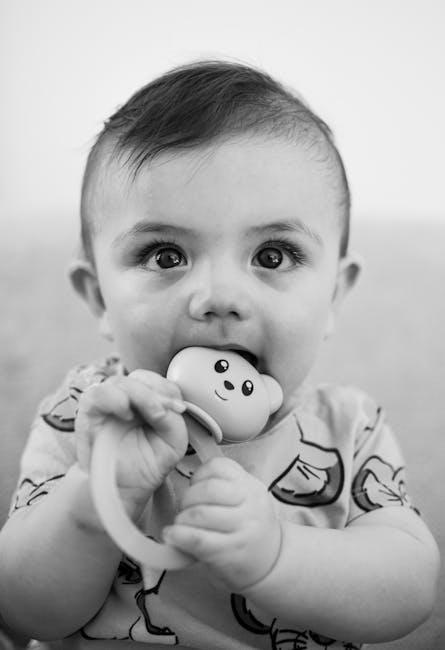9 Baby Teething Symptoms to Watch Out For – Parents Guide
Welcoming a new baby into your life brings immense joy, but also a fair share of challenges—one of the most common being teething. As your little one’s first teeth prepare to break through, parents need to stay alert for various baby teething symptoms. Recognizing these signs early can help you soothe your baby’s discomfort and ensure their health and happiness during this milestone phase.
Understanding Baby Teething
Teething typically begins between 4 to 7 months of age, though every infant is unique, with some starting earlier or later. During this process, the emerging teeth push through the gums, which can cause irritation and discomfort. While teething is a natural developmental stage, the symptoms and the intensity can vary greatly from one baby to another.
9 Baby Teething Symptoms to Watch Out For
Wondering how to tell if your baby is teething? Here are the nine most common baby teething symptoms parents should watch out for:
1. Excessive Drooling
Increased saliva production is one of the hallmark signs of teething. Babies may drool much more than usual, leading to soaked clothes and the need for frequent bib changes.
2. Chewing and Biting Everything
The pressure from emerging teeth often compels babies to chew and bite on fingers, toys, or anything they can get their hands on to relieve gum discomfort.
3. Swollen, Tender Gums
You might notice that your baby’s gums look red, puffy, or tender to the touch near where a new tooth is about to appear.
4. Fussiness and Irritability
Due to the discomfort, teething babies are often crankier or more restless than usual. They might cry more or have difficulty sleeping.
5. Trouble Sleeping
The pain and irritation from teething can disrupt your baby’s normal sleep patterns, leading to frequent waking at night.
6. Refusal to Eat or Drink
Some babies may refuse to nurse or eat solid foods because sucking or chewing aggravates their sore gums.
7. Mild Fever
It’s common for babies to experience a low-grade fever (usually under 101°F or 38.3°C) during teething, but high fevers typically suggest another illness and warrant a doctor’s visit.
8. Ear Pulling and Cheek Rubbing
Babies sometimes pull on their ears or rub their cheeks because of pain that radiates from the gums to nearby areas.
9. Rash Around the Mouth or Chin
Excess drooling can cause a mild skin rash or irritation around the mouth and chin, especially if the drool isn’t regularly wiped away.
Table: Common Teething Symptoms & Suggested Remedies
| Symptom | Description | Common Remedies |
|---|---|---|
| Drooling | Excessive saliva leads to wet clothes & rash | Use bibs, gently wipe face, apply barrier cream |
| Chewing | Biting on objects to relieve gum pressure | Teething rings, cold washcloths, safe toys |
| Swollen Gums | Redness and tenderness in gum area | Massage gums gently, use chilled teething products |
| Irritability | Increased fussiness and crying | Extra cuddling, calm environment, distraction |
| Mild Fever | Low-grade fever under 101°F | Monitor temperature, consult pediatrician if high |
Practical Tips for Soothing Your Teething Baby
Helping your baby feel better during teething can be simple with the right approaches. Here are some practical tips that many parents find effective:
- Offer chilled teething toys: Cold objects can numb gum pain and reduce inflammation. Avoid freezing toys as they can be too hard and hurt sensitive gums.
- Gum Massage: Clean hands gently massaging your baby’s gums can provide relief.
- Maintain Oral Hygiene: Wipe gums daily with a soft, damp cloth to keep the mouth clean and reduce infection risk.
- Use Bibs & Moisturizers: To avoid skin irritation from drooling, keep your baby’s face dry and apply barrier creams or petroleum jelly if needed.
- Provide Comfort and Cuddles: Often, your loving presence and soothing voice can calm a distressed baby.
When to Consult a Pediatrician
While most teething symptoms are normal, some signs require medical attention:
- High or persistent fever above 101°F (38.3°C)
- Diarrhea or vomiting accompanying teething symptoms
- Signs of severe pain or swelling
- Unusual rash or infection around mouth or gums
- Baby refuses to eat or drink for an extended period
Always reach out to your pediatrician if you are concerned or uncertain about your baby’s symptoms.
Parents’ First-Hand Experiences
Many parents share that their teething journeys were a mix of tough nights and sweet victories. One mom recalls, “My baby chewed on everything but preferred a cold, wet washcloth the most.” Another dad said, “Massaging my son’s gums seemed to soothe him when nothing else worked.” Hearing other parents’ experiences can help you feel less alone and give fresh ideas to try.
Conclusion: Navigating Teething with Confidence
Recognizing the key baby teething symptoms and responding with gentle care can make this milestone easier for both you and your baby. While teething might bring some discomfort, it’s a sign that your little one is growing and developing just as nature intended. By watching for signs like drooling, irritability, gum swelling, and feeding changes, you’ll be well-equipped to support your baby during this exciting time.
Remember, every baby is different, and your loving attention is the best comfort of all. With patience, effective remedies, and awareness, the teething phase will soon pass, leaving you to celebrate those precious first smiles and pearly whites.


